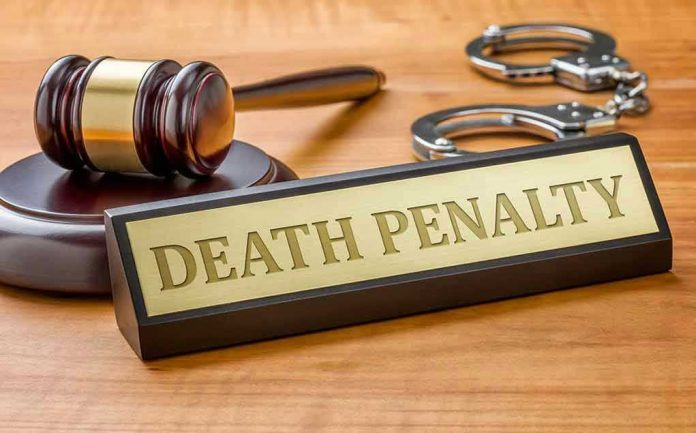
State lawmakers are turning the death penalty debate on its head, considering policies that could send shockwaves through both the justice system and the American conscience.
Story Highlights
- Trump’s death penalty expansion is gaining real momentum in state legislatures.
- The proposed changes could dramatically increase the number and types of crimes eligible for execution.
- Legal and political battles are intensifying as states push boundaries on capital punishment.
- These efforts are reigniting fierce debates over justice, deterrence, and American values.
Trump’s Call for Broader Use of the Death Penalty Echoes Nationwide
President Trump’s vocal advocacy for expanding the death penalty has not faded. Instead, his stance has energized state lawmakers across the country, who are introducing bills designed to broaden the scope of capital punishment. The movement is not limited to traditional “red states.” Legislators in swing states and even some blue-leaning regions are responding to public anxieties about crime and seeking harsher penalties for a wider range of offenses. The momentum of these proposals signals a potential turning point in American criminal justice policy.
Trump’s death penalty push gains traction in statehouses https://t.co/TNKDyQaNki
— The Hill (@thehill) October 13, 2025
This surge in legislative activity comes at a time when national attitudes about crime and punishment are deeply polarized. Polls show that while support for the death penalty has waned from its peaks in the 1990s, a significant segment of the public still favors capital punishment for the most egregious crimes. Trump’s rhetoric has tapped into these sentiments, framing the death penalty as both a deterrent and a moral imperative in the face of heinous offenses. State lawmakers, sensing a shift in the political winds, are eager to capitalize on this energy, even as opponents warn of grave legal and ethical risks.
Legislative Proposals Push Legal and Moral Boundaries
In statehouses from Florida to Ohio, lawmakers are advancing bills that would make more crimes—such as certain drug offenses, sexual assaults, and violent acts against law enforcement—eligible for the death penalty. Some proposals seek to lower the threshold for capital punishment, allowing prosecutors greater discretion and, in some cases, bypassing traditional jury requirements. These initiatives spark heated committee debates, with advocates insisting that only the ultimate penalty can address the worst crimes, while critics argue that such changes threaten due process and risk wrongful executions.
Proponents of the expanded death penalty argue that it sends a clear message to would-be offenders: the state will not tolerate acts that shock the conscience. They point to rising concerns about crime and the opioid crisis as justification for more aggressive measures. Critics, however, warn that expanding capital punishment in this way could disproportionately affect marginalized communities, exacerbate racial disparities, and result in protracted legal battles that drain public resources without delivering real justice.
The Coming Clash: Courts, Constituents, and Conservative Values
Legal experts predict that if these new death penalty laws pass, they will face immediate challenges in state and federal courts. The Supreme Court has already placed constraints on the types of crimes eligible for the death penalty, and many constitutional scholars believe that further expansion could run afoul of established precedent. Yet, with a conservative majority on the Court and shifting political tides, the future of these laws remains uncertain.
For many conservative Americans, the debate over expanding the death penalty strikes at the heart of competing values: the desire for law and order versus the commitment to due process and limited government. The outcome of these legislative pushes will hinge on whether lawmakers can persuade voters that the benefits of greater deterrence and retribution outweigh the risks of government overreach and irreversible error. Regardless of where the gavel finally falls, the battle over the death penalty’s future in America is far from over.
Sources:
Trump’s death penalty push gains traction in statehouses



